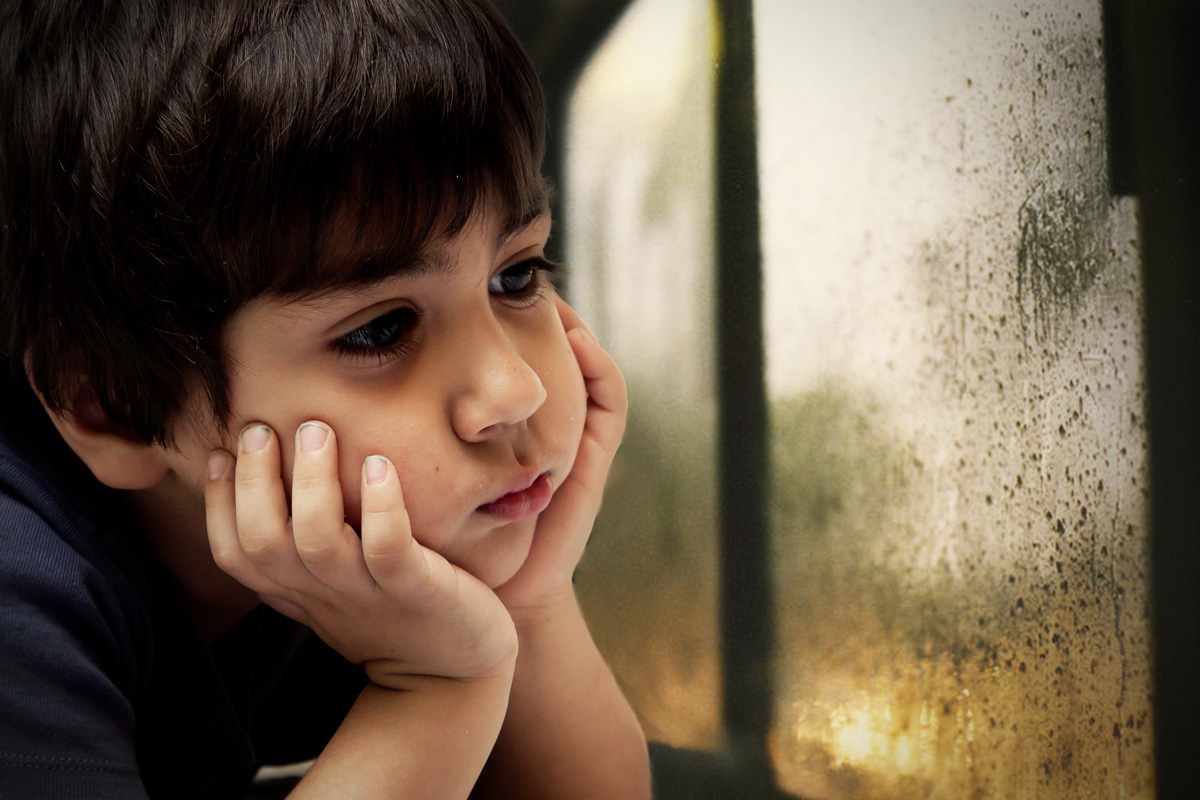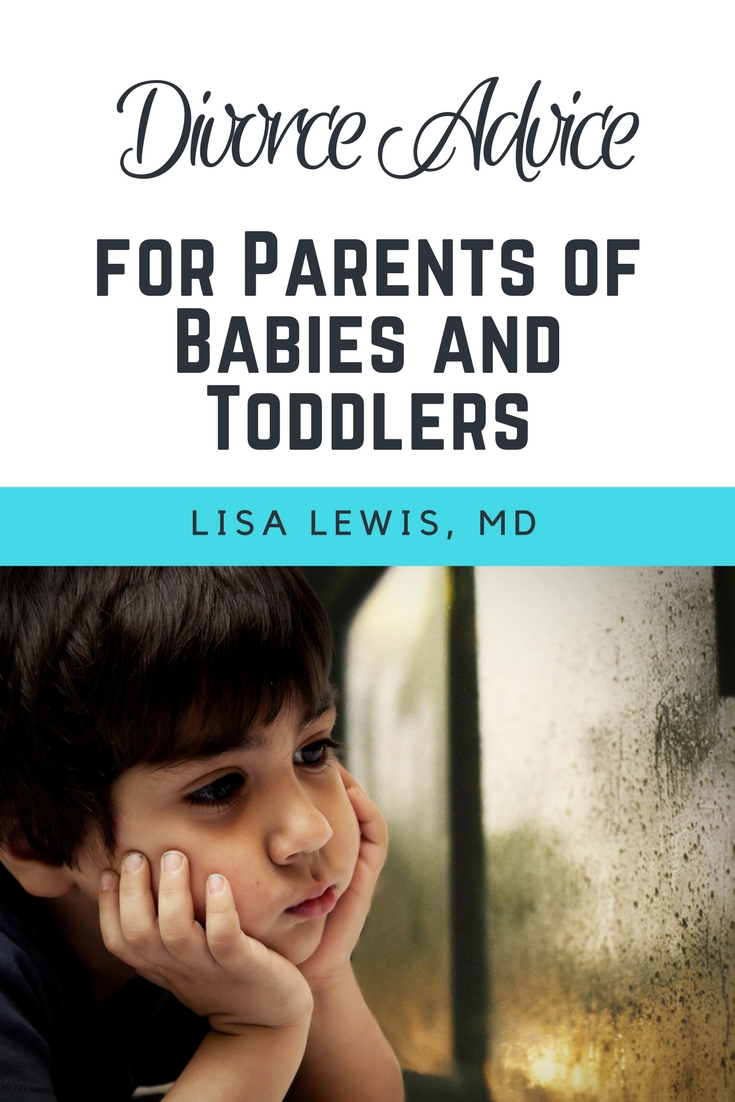Divorce Advice for Parents of Babies and Toddlers
Children might seem too young to understand divorce, but they certainly react unfavorably to stress. They can pick up on change in their environment and constant tension in the family home. The priority in a divorce or separation must be to consistently maintain the bond between the parents and the child.
If divorce or separation occurs, both parents need to stay present and consistent in their child’s life. Severe stress will interrupt a child’s routine, and adversely affect his or her well being and development. Overall, babies who are exposed to extreme stress or interruption are often irritable and unhappy.
In America and some cultures in Europe, often divorce can be quite contentious and favor parents’ needs, not the child’s. Lisa Ferland, a resident of Sweden and author of the Knocked Up Abroad series, states, “Swedes are very equitable and divorces and child custody are usually split 50-50.” Such a situation allows parents to get equal time with the child, yet the child could still suffer and miss the other parent.
There is no ideal situation on parenting children when parents are not living in the same home, other than fair and effective co-parenting. In a perfect world, the parents get along and co-parent well, so the children feel they can communicate with either parent when needed. We are not perfect, but our goal can be to put the needs of the child above any conflict the parents have.
Actions to Take
Keep a consistent routine. When a baby or young child leaves one parent to go with another parent overnight, this could be a difficult transition. It’s good to send familiar objects with the child, such as a favorite blanket or toy. Keep the lines of communication open so that favorite foods, similar routines, and discipline techniques are respected in both homes.
Babies aged seven months and up might show separation anxiety when leaving one parent to go with another. Your baby should feel safe and comfortable when this happens. It’s important not to rush from one environment to the other. A quick handover might be overwhelming for the child. If crying and separation anxiety occurs, the parent staying behind should reassure the child, and the parent leaving with the child should be nurturing. The parent to whom the child shows anxiety might feel rejected. However, both parents must understand this is a normal developmental response, not a reflection of the child’s true feelings. Patience and understanding is imperative. Getting angry with a child for feeling separation anxiety will not help your child’s mental state of being.
Answer questions honestly and in a simple manner. Your child may ask questions, such as “Why do I have to go to Daddy’s house?” Answer honestly without a lot of extra detail. Toddlers will not understand the complexity of divorce, but will notice changes in the household.
Respond quickly to your child’s needs. When you respond quickly to your baby or toddler's needs, this builds trust between parent and child. Be sensitive and loving. Allow both parents to spend time with the child.
Encourage other family members to follow your lead in co-parenting. You might need to gently remind well-meaning family members to refrain from commenting negatively about either parent. Also, dropping off and picking up the child without tension helps tremendously. If tension is high between the parents, they can agree to let a trustworthy neutral friend or family member drop off and pick up the child.
Mental Health is Important
Work toward good individual psychological health. To do this, each parent must tend to his or her own needs while respecting the needs of the baby.
Taking care of yourself is good modeling for a child. Consider doing stress-reduction activities for your child during and after a divorce. If the marriage ends, your priority should be recovery from the hurt and creating amicable relationships for both the parents and the child.
If sadness or depression is overwhelming; use outside resources to help create a healthy environment in the home. Divorce is challenging, especially if you feel sad or depressed. Difficult feelings might require you to seek outside resources to help you create a positive, nurturing environment for your child. A change in environment to enhance nurturing could include friends, grandparents, a mother’s day out, or daycare enrollment. If your sadness or depression is severe, talk to your doctor and get help from a referred counselor.
Try to maintain an amicable relationship for the sake of the child. Divorcing parents usually experience and display discord, which can affect healthy parenting styles. If they disagree on how to parent, the baby will feel uncertain and confused.
Two people divorce for any number of reasons. This leads to a family in which the backdrop is totally changed. In many instances, the parents can’t be in the same room together because of the hostility and negativity they feel toward each other. The ideal situation would be a mother and a father who can co-parent amicably.
Get help from a mental health professional to deal with a dysfunctional parent. “What if a parent is extremely dysfunctional?” you might ask. “What if the other parent is unreasonable?” Because these are hard questions to answer, get a psychologist or counselor involved to help deal with extreme dysfunctional behavior within the family. Seek a mental health professional, ideally a counselor who works with all family members, to achieve the harmony, stability, and balance your child craves.
What if one of the parents is minimally involved (or not involved) with the baby’s care? In this instance, it’s important to keep the lines of communication open with the absent parent. As your child gets older, he or she will likely want a relationship with the other parent. Trying to stay honest with your child, yet keep the relationship positive might be difficult, but remember to keep the child’s needs high on your list of priorities.
If one of the parents has a severe problem (such as addiction or abuse) that caused the divorce, the child is left in a difficult situation. He or she will have to cope with that fact. If it’s not possible for your baby to be around this parent due to a high risk of injury or abuse, your doctor and a mental health professional can guide you and your child down the long path of recovery and help you cope.
Ultimately, your goal is to reduce the baby’s stress as much as possible. Don’t overlook the psychological needs of your child or children.
Summary of Key Tips for Divorced Parents
- Maintain consistent routines and visitations with the baby.
- Respond quickly to your child’s needs.
- Answer questions honestly and in a simple way.
- Maintain an amicable relationship for the health and well being of the child.
- Know that it’s normal for older babies and toddlers to show separation anxiety.
- Consider turning to outside resources to help create a healthy environment for the baby.
Divorce is never easy, but keeping the effort at the forefront to work amicably will go a long way toward achieving life contentment and reducing stress for the entire family.


